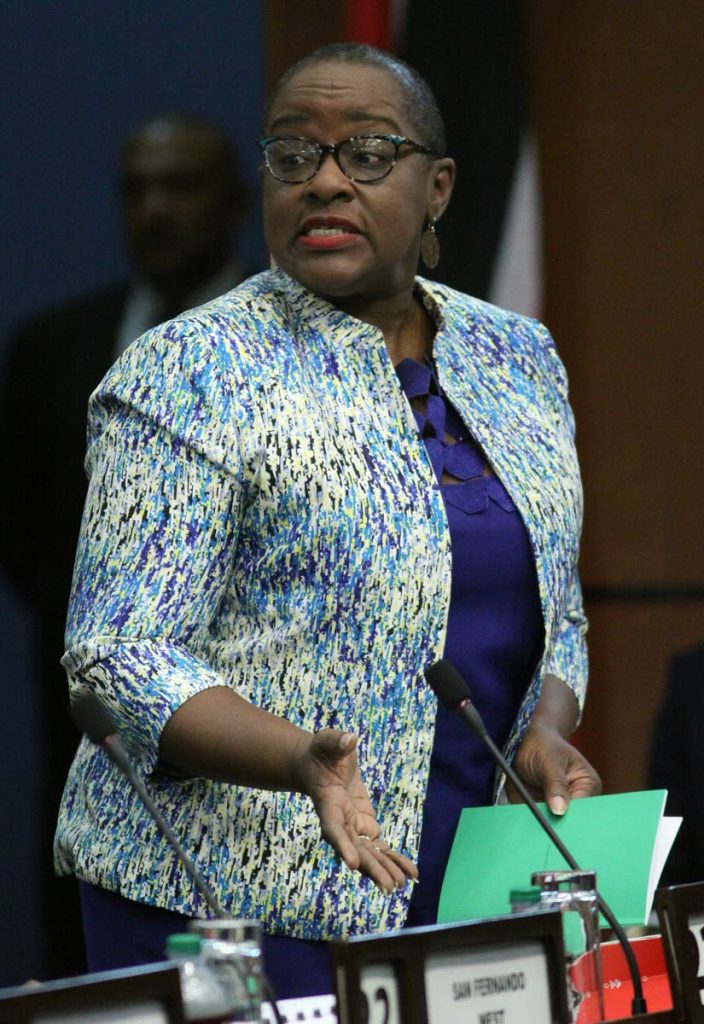Camille: CSO statistics ‘very accurate’

As the Central Statistical Office (CSO) transitions into the National Statistical Institute (NSITT), Camille Robinson-Regis, Minister of Planning and Development, said the work coming out of the CSO has been “very accurate” and it is the data that multilateral agencies rely on.
Robinson-Regis made the comments to Newsday at the Third High Level Meeting on the Country Implementation Plan (CIP) for TT at the International Waterfront Complex, Port of Spain on Wednesday.
In a February 14 article in Newsday’s Business Day, Sean O’Brien, director of statistics, said the NSITT could not come fast enough, and the biggest challenge faced by the CSO was a “lack of legislative clout.”
Robinson-Regis said in her remarks at the meeting: “The Government has aggressively sought to achieve compliance with our international agreements and reporting commitments. One of the key deliverables for us, specifically as it pertains to the ability to source accurately gathered and robust tested data was the creation of the NSITT to replace the CSO.”
In 2016, Cabinet approved a committee to guide the restructuring and transition of the CSO to the NSITT. The National Statistical Institute of TT Bill 2018 seeks to establish the NISTT and to repeal and replace the Statistics Act, Chapter 19:02. Because the bill is inconsistent with sections four and five of the Constitution, it requires a special three-fifths majority in the Parliament.
Robinson-Regis said yesterday the legislation is currently before the Parliament because of the special majority needed and a Joint Select Committee (JSC) has been established to deal with it.
The JSC is due to report to Parliament on the NSITT by March 31. Robinson-Regis will chair that committee, as the CSO’s line minister.
But apart from the legislation, the minister said staff were trained so that when the legislation is passed in both houses, “We will be ready.”
She said the NSITT was of “extreme importance” and had been talked about since the early 2000s.
“We are ensuring that we are achieving this particular goal. It is important for a country to have a statistical institute where the data is reliable, that people can trust the data and we have been ensuring that we have been moving in that direction even as we wait for the legislation to pass,” Robinson-Regis said.
She added that over the last few years the ministry has been ensuring that the information coming out of CSO is “in fact accurate.”
“It is the information on which multilateral agencies depend. National financing agencies also depend on the CSO’s data, as do the rating agencies,” she added.
When American financial services companies like Standard and Poor’s and other rating agencies rate TT, they do so on the basis of the CSO’s data.
“And they have found that that data is in fact very accurate,” Robinson-Regis said.
Even TT’s Article IV consultations with the International Monetary Fund (IMF) to assess the country’s economy health and any systemic risks, rely on CSO data.
“Even when the Central Bank brings out data, it is data they have got from the CSO,” she said.
Asked if more people will be hired as the CSO transitions, Robinson-Regis said, there may be new hires, but existing staff from the CSO will move to the NSITT.
Robinson-Regis thanked the UN, the Inter-American Development Bank, the Caribbean Development Bank and Statistics Sweden (the Swedish government agency), all of which have worked with TT over the years, for “ensuring that we are at the point that we are at now.”


Comments
"Camille: CSO statistics ‘very accurate’"